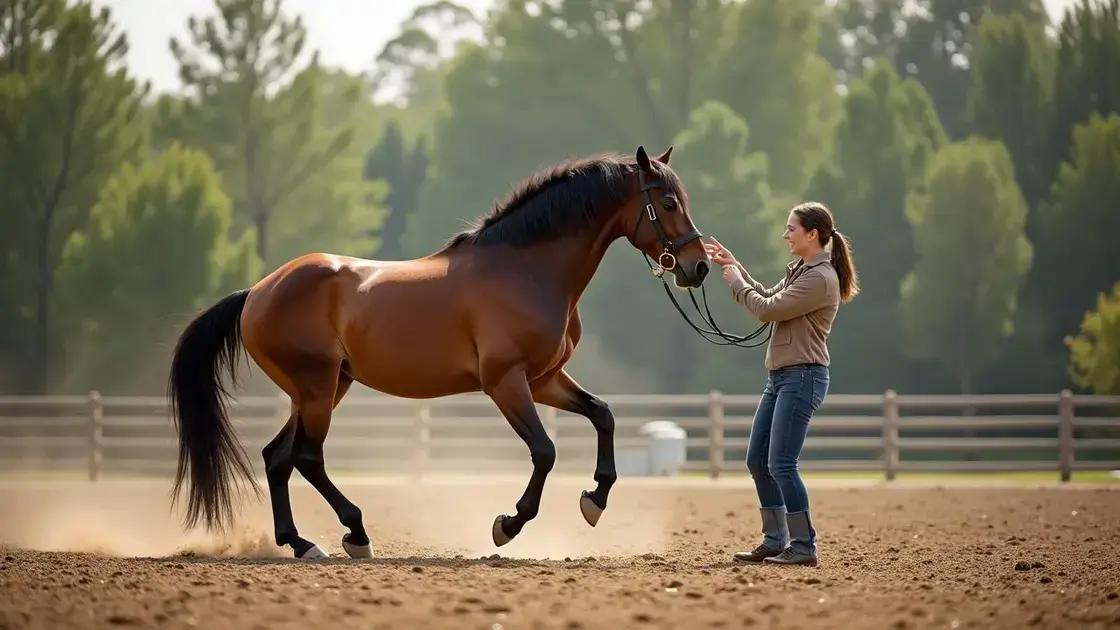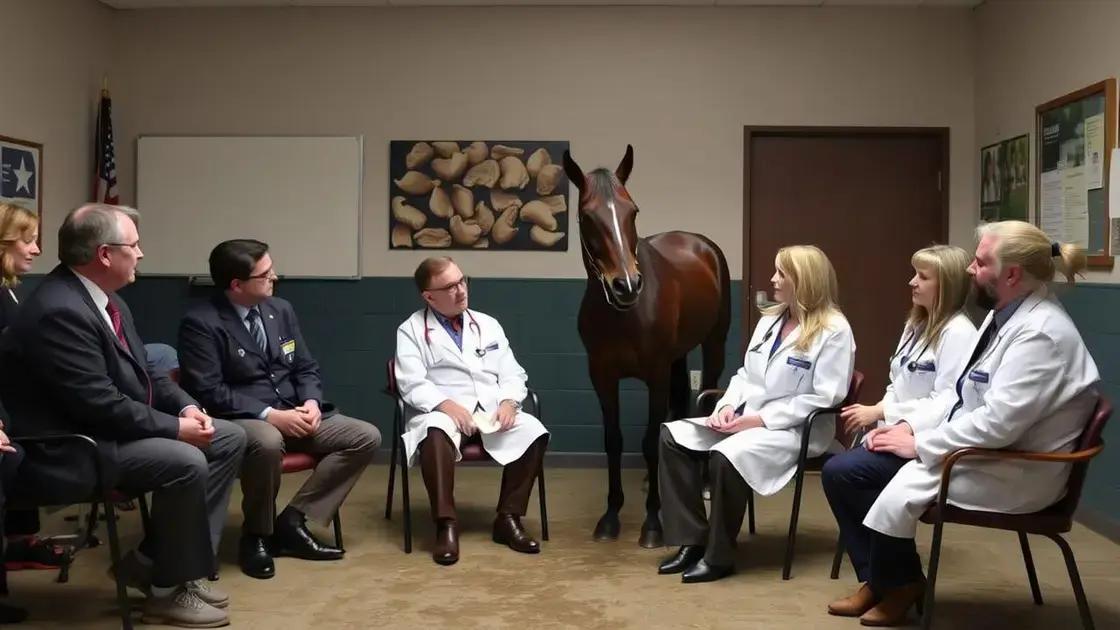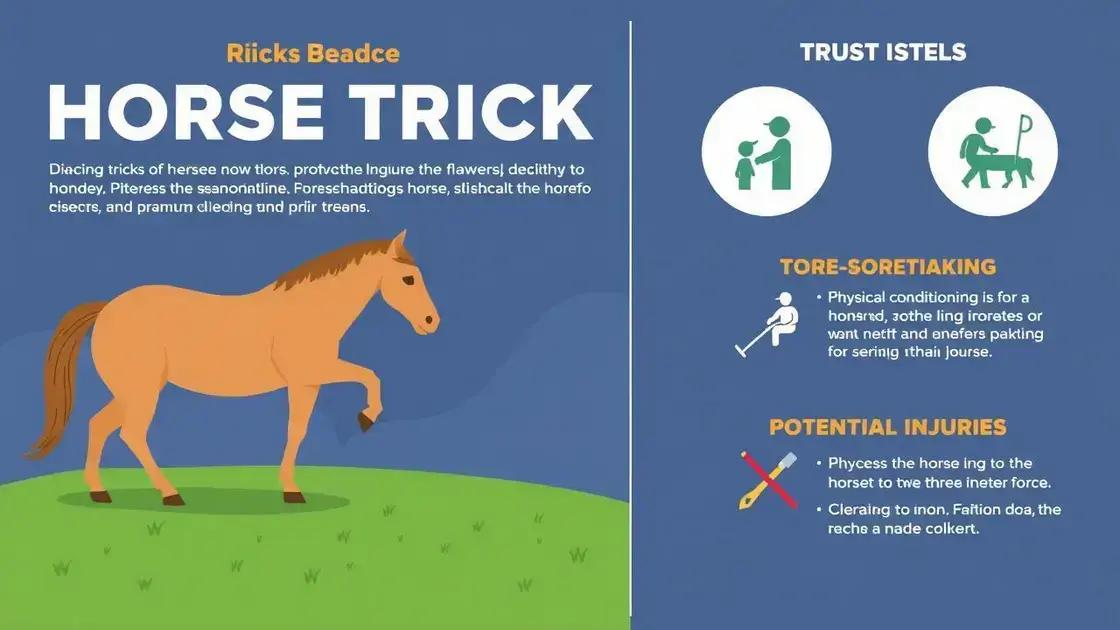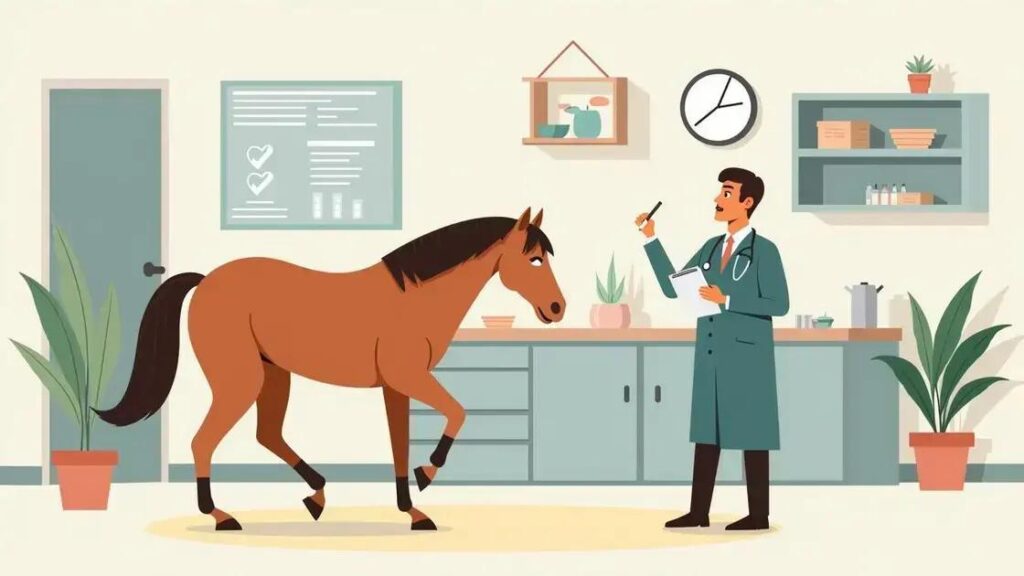The Horse Trick refers to training techniques used with horses that can enhance communication and provide therapeutic benefits. While there is no definitive medical approval, experts emphasize safe and humane practices, highlighting both the benefits, such as improved bond and physical conditioning, and risks, including potential injury and overtraining.
Is the Horse Trick truly safe and effective? Many are curious about whether this popular method has received medical approval. In our informative article, we will delve into expert opinions, the benefits and risks associated with the Horse Trick, and ultimately answer the question: does it have the medical backing it claims? Stay with us to discover the facts behind this intriguing topic.
Understanding the Horse Trick

The Horse Trick involves specific techniques used with horses, often for training or therapeutic purposes. Many people wonder how this practice works and what it entails. Understanding the Horse Trick is crucial for both practitioners and potential clients.
What is the Horse Trick?
The Horse Trick generally refers to a set of methods designed to engage horses in activities that enhance their skills and interactions with humans. Often seen in equestrian shows, it includes various maneuvers and trust-building exercises that promote a bond between horse and rider.
How Does It Work?
This technique relies on a deep understanding of horse behavior and psychology. Trainers use positive reinforcement, which means rewarding the horse for desired behaviors, to encourage learning. This approach creates a more cooperative horse, making training more enjoyable.
Applications of the Horse Trick
The Horse Trick is popularly known in both entertainment and therapeutic contexts. In entertainment, it showcases the horse’s abilities to perform tricks. In therapeutic settings, it can aid in the emotional and physical rehabilitation of individuals through interactions with the horse, highlighting the horse’s role as a supportive partner.
Why It Matters
Understanding the Horse Trick is essential for anyone interested in equine management, therapy, or entertainment. It ensures that the methods used are ethical and promote the well-being of both the horse and its handler.
Medical Opinions on the Horse Trick

Medical opinions about the Horse Trick vary among professionals. Many veterinarians and animal behaviorists are interested in the impacts of horse training techniques on both the horses and the handlers.
Veterinarian Insights
Veterinarians often express the significance of understanding horse welfare during training. They emphasize that training methods should not only be effective but also humane. Some vets endorse the Horse Trick when it promotes a positive relationship between horse and rider, while others caution against techniques that may cause stress or injury.
Behaviorist Perspectives
Animal behaviorists are also key players in assessing the Horse Trick. They study how horses respond to different stimuli and training methods. Many agree that positive reinforcement is a crucial aspect, as it builds trust and enhances learning. However, experts warn that inconsistent training can lead to behavioral issues.
Therapeutic Applications
In therapeutic settings, the Horse Trick is often viewed positively. Therapists who involve horses in their treatment methods believe that horses can help individuals build confidence and improve emotional health. They advocate for methods that respect the animal’s autonomy and encourage voluntary participation.
Research and Studies
Research in equine behavior continues to evolve, shedding light on the effectiveness and ethical implications of the Horse Trick. Studies show that when done correctly, these techniques can enhance the mental well-being of horses and strengthen the bond with their handlers. However, more research is needed for a comprehensive understanding of the long-term effects.
Benefits and Risks of the Horse Trick

The Horse Trick has both benefits and risks that practitioners and clients should consider carefully. Understanding these factors can help ensure safe and effective interactions with horses.
Benefits of the Horse Trick
One key benefit of the Horse Trick is the improvement of communication between the horse and rider. By using specific techniques, handlers can build trust, encouraging the horse to cooperate during training. This trust can lead to smoother performances and a more enjoyable experience for both parties.
Physical Conditioning
Another advantage is the physical conditioning of the horse. Engaging in tricks can provide mental and physical stimulation. These activities help develop coordination, balance, and strength, contributing to the overall well-being of the horse.
Therapeutic Effects
In therapy, the Horse Trick can foster emotional connections, particularly for individuals with anxiety or special needs. Interaction with horses has shown to reduce stress and foster healing through companionship and trust-building exercises. These benefits can enhance the emotional and psychological well-being of participants.
Risks to Consider
While the Horse Trick offers advantages, there are potential risks as well. Not all techniques are suitable for every horse, and improper training methods can lead to physical or emotional harm. It’s important to use techniques appropriate for the horse’s personality and condition.
Physical Injury
There is a risk of injury to both the horse and the handler during trick training. Horses can overexert themselves, leading to physical strain. Handlers might also face risks if they do not understand horse behavior or if they inadvertently provoke a negative reaction.
Overtraining
Another common risk is overtraining. Too much emphasis on tricks can lead to frustration or burnout for the horse. Maintaining a balanced approach is essential to keep training enjoyable and effective.
Educated Training
Therefore, it’s crucial for handlers to educate themselves on horse behavior and proper training methods. Consulting with trained professionals can mitigate risks and ensure that the Horse Trick remains a beneficial practice for both horse and handler.
Final Thoughts on Medical Approval

When considering whether the Horse Trick has medical approval, it is essential to examine various perspectives. Medical approval often relies on research, clinical evidence, and expert opinions.
Current Studies
As of now, there are limited comprehensive studies that specifically address the medical approval of the Horse Trick. Some research suggests that certain equine activities can benefit emotional and psychological health, particularly in therapeutic settings.
Expert Recommendations
Experts generally recommend that practitioners use methods that prioritize the welfare of the horse and ensure safety for all involved. This promotes trust and cooperation, key aspects of any successful training or therapeutic interaction.
Informed Practice
To advance the discussion about medical approval, it is vital to encourage ongoing research that explores the benefits and limitations of the Horse Trick. Evaluating the long-term effects on both the horse and the handler is crucial for making informed decisions.
Community Conversations
In the equestrian and therapeutic communities, conversations about practices like the Horse Trick continue to evolve. Engaging with professionals, such as veterinarians and equine behaviorists, can offer valuable insights that help to shape future guidelines.
Seeking Professional Guidance
Individuals interested in the Horse Trick should seek guidance from qualified professionals to ensure safe practices. Knowledgeable trainers can provide useful instruction and share best practices, leading to a better understanding of how the Horse Trick can be safely integrated into various training and therapeutic settings.
In Summary: The Horse Trick and Its Medical Implications
The Horse Trick presents a unique blend of training techniques that can greatly benefit both horses and their handlers. Understanding the complexities behind this practice involves examining the benefits, risks, and expert opinions.
While there is currently no definitive medical approval for the Horse Trick, ongoing discussions within the veterinary and equine communities highlight the importance of ethical practices. Ensuring the welfare of the horse and safety of practitioners is paramount.
Engaging in continuous research and professional guidance will aid in making informed decisions surrounding the Horse Trick. As this topic evolves, it remains essential for trainers and equine enthusiasts to approach it with care, curiosity, and respect for the animal’s well-being.
With careful consideration and informed practices, the Horse Trick can be a positive experience that enriches the bond between horse and handler.
FAQ – Frequently Asked Questions about the Horse Trick
What is the Horse Trick?
The Horse Trick refers to specific techniques used with horses for training and therapeutic purposes, enhancing the bond between horse and handler.
Does the Horse Trick have medical approval?
Currently, there is no definitive medical approval for the Horse Trick, but opinions vary among experts regarding its benefits and risks.
What are the benefits of the Horse Trick?
Benefits include improved communication between horse and handler, physical conditioning for the horse, and therapeutic effects for individuals working with horses.
Are there any risks associated with the Horse Trick?
Yes, risks include potential injury to the horse or handler and challenges related to overtraining. Proper methods should always be employed.
How can I ensure safe practices when using the Horse Trick?
Seek guidance from qualified professionals, educate yourself on horse behavior, and prioritize the horse’s welfare to ensure safe practices.
Can the Horse Trick be used in therapeutic settings?
Yes, the Horse Trick has been positively viewed in therapeutic contexts, helping individuals build confidence and improve emotional health through horse interactions.













